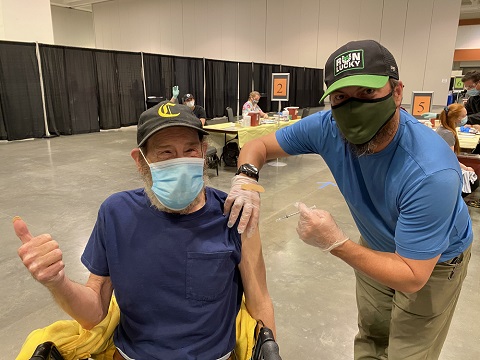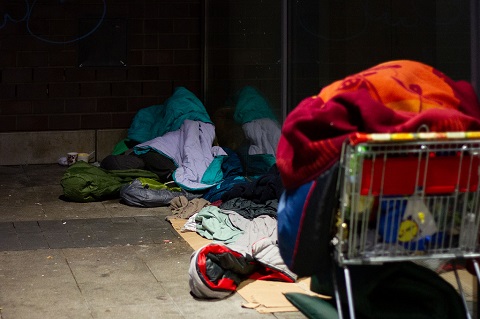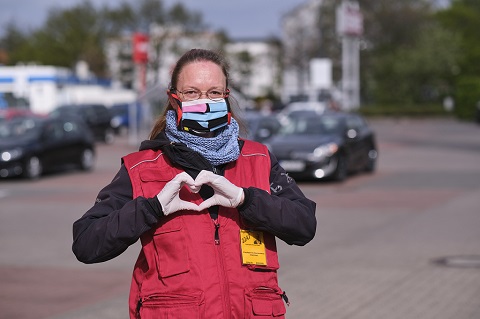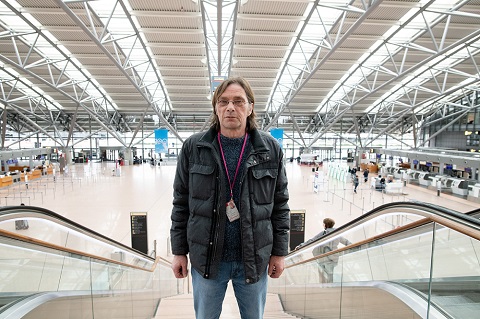By Alisa Müller, Strassenkreuzer
In the small kitchen next to the wall is a square, plastic-topped table with a bunch of red and white roses. A pack of cocoa, one of noodles, and some fruit, are on the wooden shelves. It looks like a perfectly normal flat-share apart from one thing: there’s a sticker with ‘Room 9’ on the edge of the shelf on the left and ‘Room 10’ on the edge of the one on the right. If this were students, there’d be names instead. Here in ‘Haus Sonnenschein’ things are different and with good reason. The inhabitants need to give up the room and its number to the next woman that needs it as soon as possible.
Men must not enter ‘Haus Sonnenschein’. It is therefore the only homeless shelter in Nuremberg that is just for women. The manager, Christine Kunstmann, is not keen on the term. As she says, “women end up here all too quickly”, and “when we talk about ‘homelessness’ lots of people immediately assume it’s because the homeless are asocial”, when in fact former teachers, and the executive secretary of a respected Nuremberg firm once stayed in Haus Sonnenschein.
Nor does the word ‘shelter’ fit Haus Sonnenschein that well: on each of the three floors of the house there’s a corridor leading to three or four single rooms. The rooms are brightly painted with plenty of space for a bed, wardrobe, table and chest of drawers. There is a shared bathroom and kitchen on each floor. A cleaning rota is displayed in each corridor. On a weekly basis the inhabitants share the cleaning duties on their floor. “Everybody does their own thing but they do sometimes meet over breakfast or whilst having a smoke on the balcony,” so says Andrea Gabler, who has been living here since the start of the year. Is it a desirable spot? She considers for a moment and then nods: “Yes, it certainly is.”
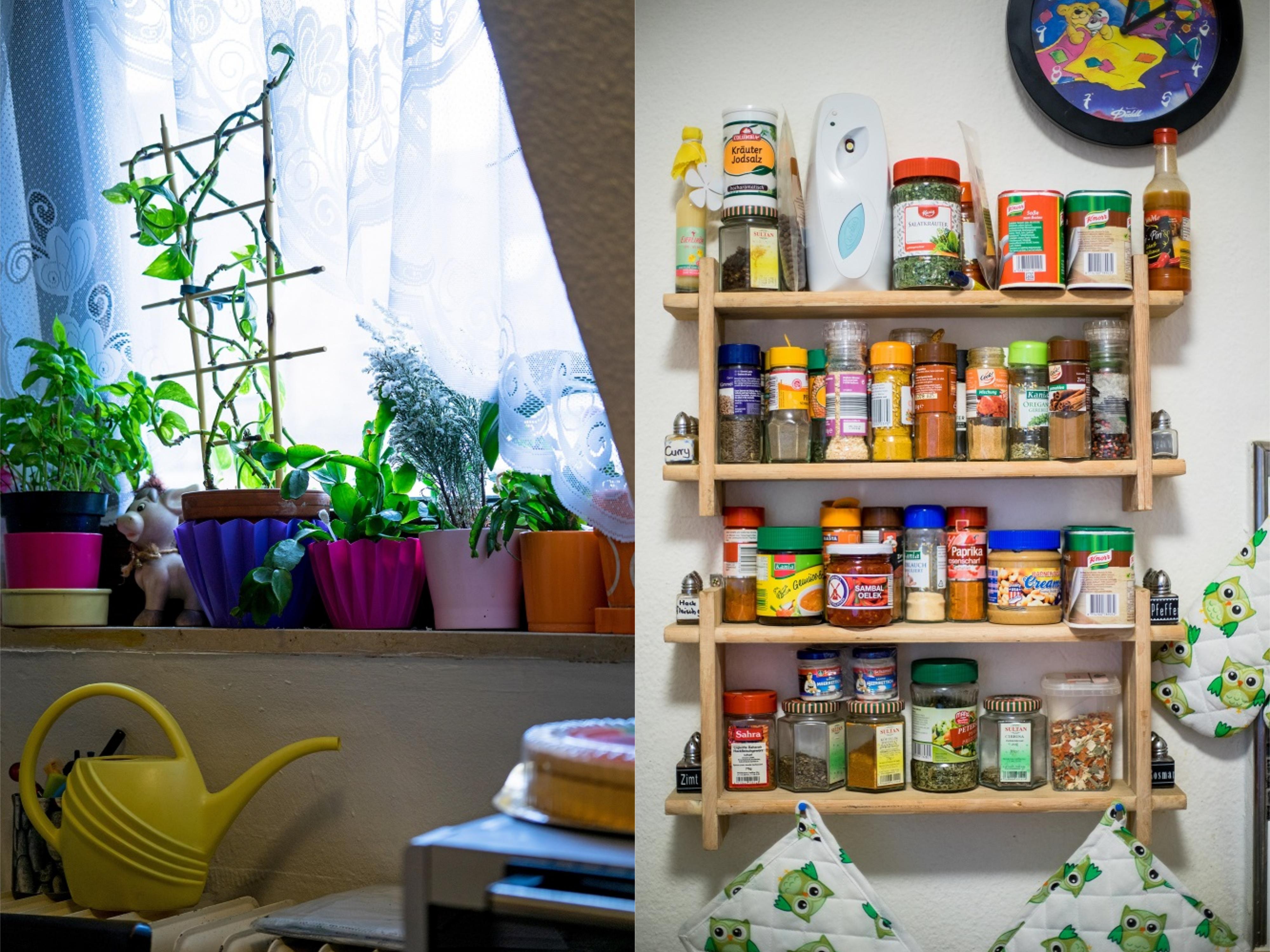
The use of this house, in the middle of town, has developed over time. In the early years, from 2006, it was a refuge for women who were victims of domestic violence; somewhere to go to and be temporarily hidden. Since then many women have used the house as a long-term residence. They are often able to pay the 330 Euros in rent themselves because they have a pension or a part-time job. The woman who has occupied a room for the longest time has been here ten years.
The women should really only stay until they’ve found a job or affordable accommodation. But Christine Kunstmann sets no fixed time limit and sometimes feels that she has to justify this: “I can’t throw someone out when I know they won’t be able to manage without any support.” This petite woman speaks animatedly when she talks of the difficulty with which these women make the move to a regular home: “when they do find affordable accommodation it is usually in a block of flats, where socialising is structurally difficult and a 70-year-old woman living alone does not feel safe.”
That said moving into their own flat is a step too far for a lot of women: “Without sufficient support very many are likely to fall apart again. What’s needed is a complex of small, affordable flats with someone they can go to for help on site.”
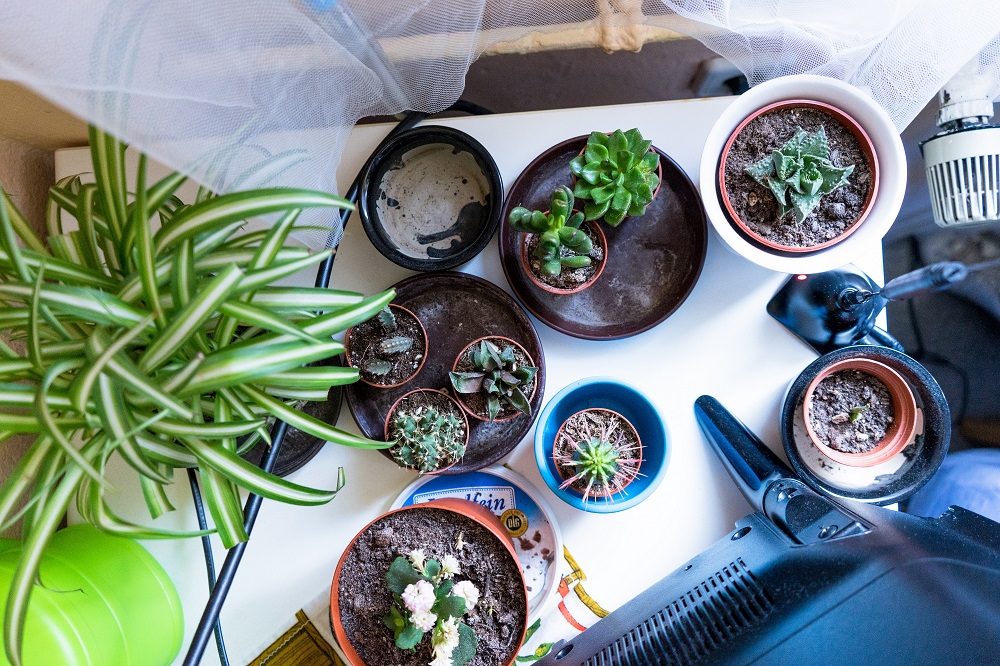
Finding the second weakest section of society
Haus Sonnenschein is a life-long project for this 63-year-old, who looks much younger thanks to the very few strands of grey in her dark hair. As she says, “I have always been a people person.” She worked in catering for a long time. At 50 years of age she decided to do what she’d always wanted: to help others and earn her living doing so. At first she wanted to help children in need but the whole thing was too complicated. “So I sought out the next weakest section of society, which was definitely not men!”
Christine Hartmann’s view of the real state of our society is harsh: “If you look closely, it’s a patriarchy. I’m not sure that we’ll ever have complete equality, at least not in my lifetime.” And so, Haus Sonnenschein must remain a retreat for women only, where they can get themselves together and find a new way in life. This is certainly what’s needed, as is evident from the testimony of some of the inhabitants, such as Syringa Steinberg who says, “I’m glad to be able to be at peace here away from men.” Syringa had spent 30 years with her husband but after a stroke and two lots of surgery he was a changed man: the pain made him aggressive and she bore the brunt of this. Syringa got progressively weaker and at the same time began to suffer from epilepsy. It was a carer that got here out of there. She was able to recover at Haus Sonnenschein.
For Andrea Gabler, who lives next door, it’s immaterial whether men also live in the house. She used to live in mixed accommodation and shared a room. For her, this is what makes the difference: “It’s really nice to be on my own for once.” Her main hobby is sport and she’s really happy that there’s nobody here to change the channel in the middle of the sports roundup. It was a conscious decision on the part of Christine Kunstmann that there should be single rooms: “If we had bunk beds in each room, we could serve twice as many people but first and foremost I want to enable women to have a pleasant life rather than maximise income.”
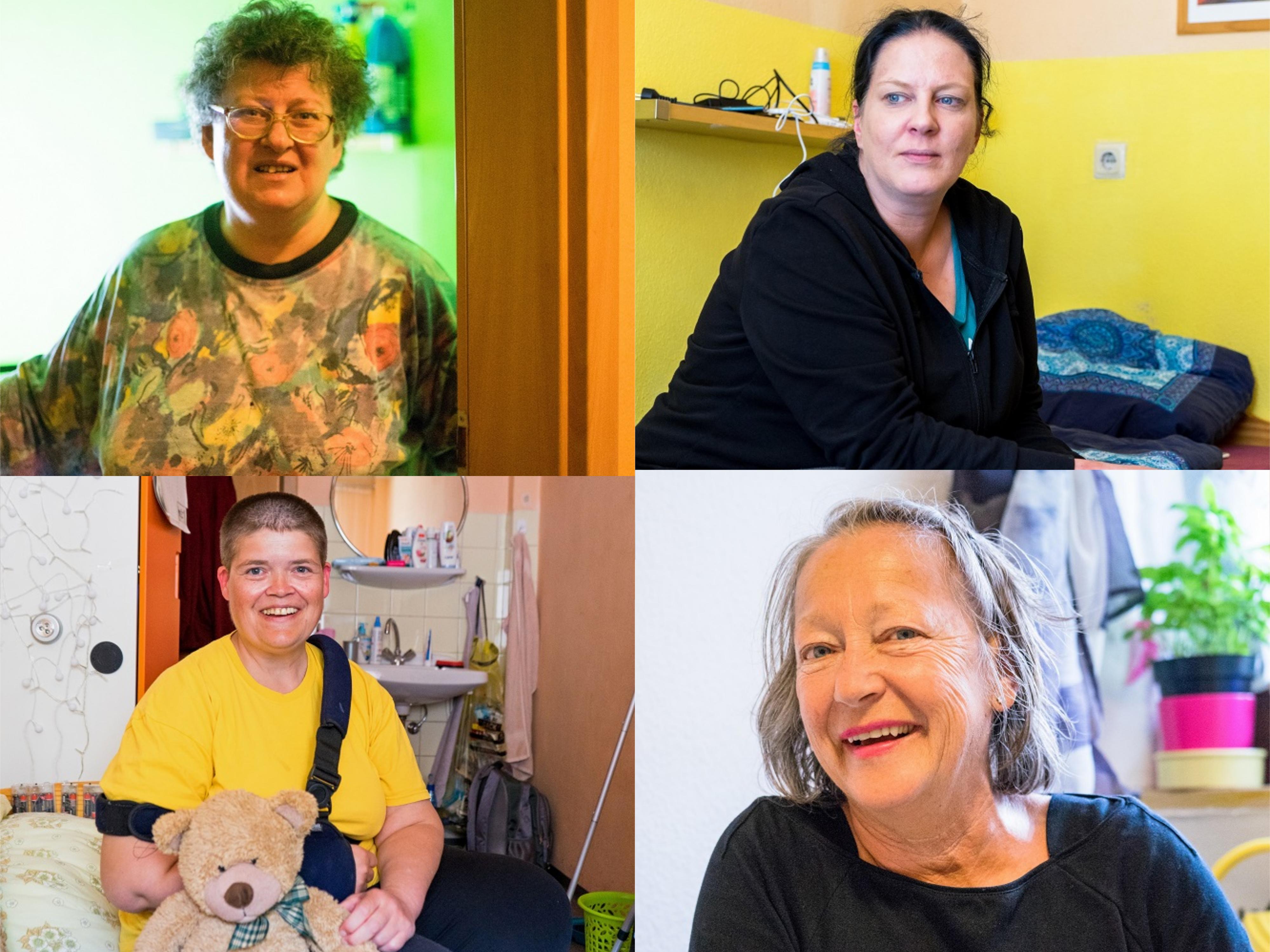
The house rep as arbitrator
Most women are referred to Haus Sonnenschein by social services or some other organisation. In principle almost every woman who positively wants a room here has the chance of getting one. If, though, she abuses this opportunity, she’ll be shown the door. As Kunstmann explains: “If for example someone does not keep to the cleaning rota, she’ll receive a warning the first couple of times but on the third occasion, she’ll have to move out.”
Kunstmann is trying to gently prepare the women for an independent life. Keeping their accommodation clean is as much a part of this as personal hygiene and treating others with respect. In order to have someone with an eye on this all the time, Claudia Popp has voluntarily taken on the role of house rep. She lives in the house herself, where she supports the women and smoothes out minor disagreements. As Kunstmann says, “I’d like to be able to give everyone here a similar task because it’s important to feel needed.”
This is perhaps not true though for Manuela Hees, the latest addition to the house. She already has a great burden to carry. Her two children aged only one and two years old respectively, have been living with a foster family for several months. Her husband has custody of the four older children; Manuela having left the family home when they separated. Since New Year she has seen the two little ones only once per week for two hours. Manuela is currently preparing for the court hearing where she hopes to get them back. She wants to then move into a home for mothers with children where the three of them can learn to be together again. In the future she hopes to have a flat that is suitable for her and her two children. Communal living is only a stop-gap for most and that’s as it should be.
Translated from German by Louise Thomas








